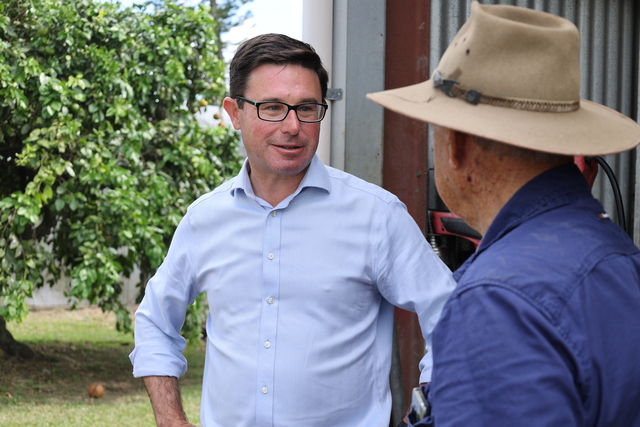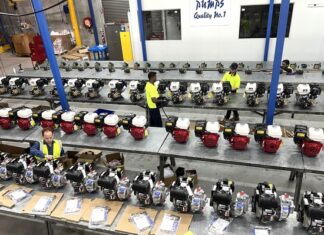Big retailers in Australia need mandatory rules that demand fairness in dispute resolutions, a review into supermarkets has recommended.
In January, the federal Government appointed economist and former Labor MP Craig Emerson “independent reviewer“ of the Food and Grocery Code of Conduct, which exists to keep supermarkets honest.
Dr Emerson delivered an interim document last month, with the full report expected in June.
The ACCC and Senate are also investigating big Australian retailers, all of which have faced intense public scrutiny for contributing to escalating cost of living expenses.
Dr Emerson said the existing Food and Grocery Code of Conduct was ineffective and needed to be mandatory for Coles, Woolworths, Aldi and wholesaler Metcash.
“It contains no penalties for breaches and supermarkets can opt out of important provisions by overriding them in their grocery supply agreements,“ he said.
“Effective penalties must apply for breaches of the mandatory code. This would bring the Australian Competition and Consumer Commissions (ACCC) into code enforcement.
“It would be able to seek penalties for major or systemic breaches of up to $10 million, 10 per cent of a supermarket’s annual turnover or three times the benefit it gained from the breach, whichever is the greatest.”
Dr Emerson said the ACCC would need to progress through the courts to enforce the Code, with a cheaper alternative suggested to help resolve disputes.
“This would involve replicating processes for independent mediation and arbitration that are in other industry codes, while also allowing for the complaint-handling provisions of the voluntary code,” Dr Emerson said.
The National Farmers’ Federation has long sought a mandatory code of conduct.
President David Jochinke said Dr Emerson had endorsed the group’s calls for a mandatory code, with greater penalties for breaches.
“The status quo clearly hasn’t worked for many producers,“ Mr Jochinke said in a statement.
“Farmers have continued to suffer a massive power imbalance, so we support measures to improve transparency and accountability.
“Farmers need this stronger protection in negotiations where there is a large number of small producers dealing with a small number of large retailers.“
Mr Jochinke said it was wise to increase penalties of non-compliance to $10 million and to introduce safeguards against retribution.
“This should send a strong message to retailers that the Code now has teeth,” Mr Jochinke said.
“Likewise, we support the proposal to better protect farmers from commercial retribution.
“It makes sense to monitor commercial decisions by retailer buying teams following a disagreement and that will help give producers confidence to speak up.”
Nationals leader David Littleproud was unhappy about the timing of the final report, saying June 30 was “too far away”.
“The Nationals wrote to Labor more than 15 months ago offering bipartisan support, urging Labor to take action on supermarket price gouging, which impacts almost every single Australian,” Mr Littleproud said.
“Instead, Labor allowed families and farmers to be ripped off because it was too focused on a $450 million failed Referendum.”











